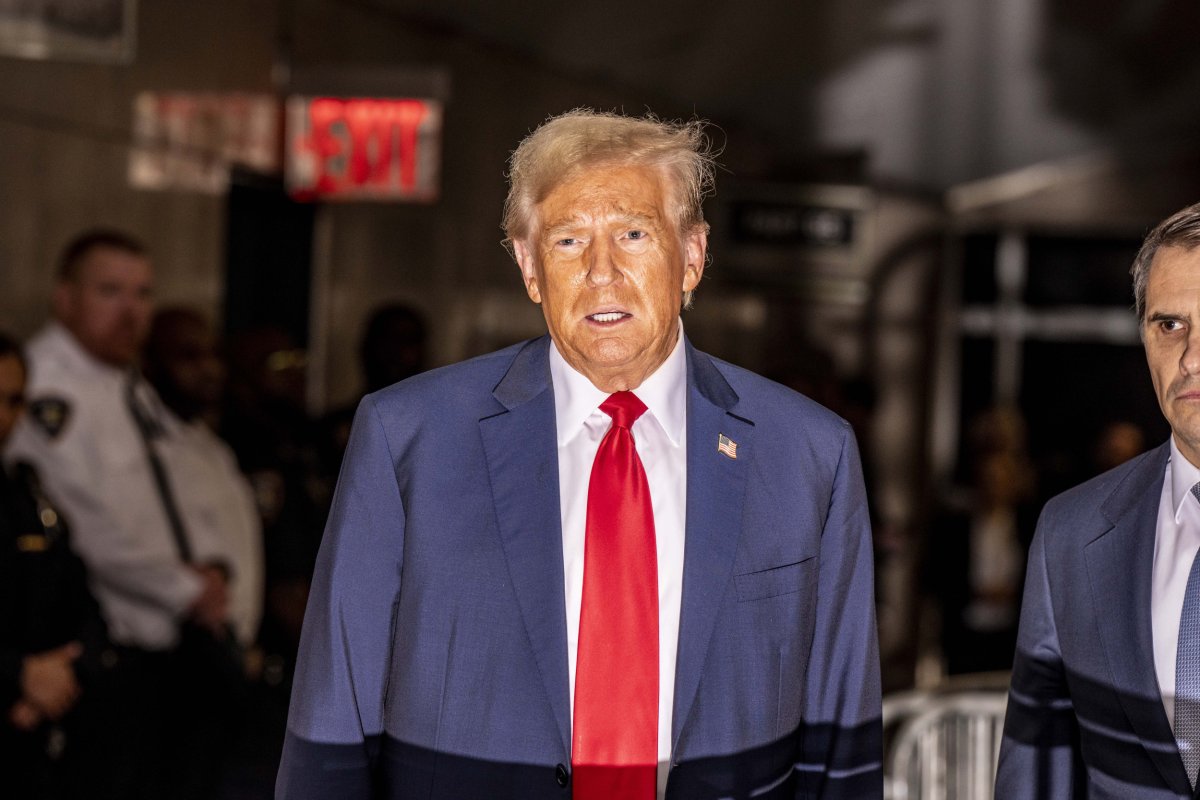After months of delay, the Supreme Court on Thursday heard former President Donald Trump's claim that he is immune from prosecution for crimes committed as he tried to overturn the results of the 2020 presidential election. The good news is that no one suggested the president is above the law.
Yet, as too often happens at the Supreme Court, the matter will hinge on word play. Trump's lawyer D. John Sauer conceded that a president could be criminally liable for "personal" acts but claimed that he couldn't be liable for "official" acts unless convicted following an impeachment. Worse, Sauer contended that if any part of the transaction looks like something the president does frequently the transaction must be "official."
Fortunately, Chief Justice John Roberts quickly went after him on this issue, asking if taking a bribe to appoint an ambassador was "official." Sauer said the appointment is an official act. He conceded that the bribe isn't but insisted that it couldn't be prosecuted because no evidence could be admitted in a resulting bribery case about the "official" appointment. This left the chief justice reassuringly puzzled.

Sauer went on to repeat to Justice Sonia Sotomayor Trump's claim that a president would also be criminally immune for killing a political rival unless impeached and convicted—with an even worse case-killing caveat. Sauer claimed the president acting officially isn't subject to ordinary criminal laws—including murder—unless the statutes expressly do something they never do—name the president. To Sauer, having committed no crime, a president murdering a rival couldn't be impeached for "a high crime or misdemeanor," not to mention prosecuted.
In support of these extraordinary views, Sauer dragged a red herring across the courtroom. He argued that without this kind of absolute immunity, every drone-striking, war-promoting president will fear prosecution. But why would they? No one in the case claims they should. Indeed, special counsel lawyer Michael Dreeben was clear there is no liability for "core" presidential functions of this type, and the justices shouldn't waste time on them.
Trump is charged with engaging, not in official national policy, but a fraud for personal gain. As Justice Elena Kagan pointed out, it only makes it worse that he used his "official" post to further the attempt by pressuring local officials and the Justice Department to join his campaign team's effort to subvert the election.
For now, the court should make clear that joining routine presidential things with a fundamentally personal fraud neither changes the personal to official nor requires the seemingly official parts to be omitted from the case. Rather than set in stone the outer limits of "official" acts, the court should make clear that the acts alleged in the indictment against Trump are outside the broadest notions of immunity, regardless of whether we are concerned about them being "plausibly," "reasonably," "at core" or within the "outer perimeters," of official acts as debated by the justices. Until 2020, no one imagined the scenario we are faced with today. The court shouldn't box itself in regarding what might surface tomorrow.
The justices should also resist the suggestion that the lower court hold hearings before trial on whether the indictment states activities outside the scope of presidential duties. It should simply hold that it does. The acts alleged that were part of routine presidential business like talking to Justice Department and local officials are alleged to have been part of Trump's effort as a candidate for president to corruptly overturn the results of an honest election. If a jury finds these allegations are untrue, it may acquit Trump, but, under these allegations, there is no reason to address the issue twice, adding more delay and perhaps another appeal.
Above all things, none of this "official" discussion should becloud the most dangerous thing Trump asks the court to adopt—that "official act" criminal liability of any kind could only follow the president's impeachment and conviction. This would mean that even the worst such crimes—murder and the like— would be consequence-free if the president could count on 33 senators, by threat, bribe, or other means to vote "no" at an impeachment trial. If Trump gets his way on that one, God help us.
Thomas G. Moukawsher is a former Connecticut complex litigation judge and a former co-chair of the American Bar Association Committee on Employee Benefits. He is the author of the new book, The Common Flaw: Needless Complexity in the Courts and 50 Ways to Reduce It.
The views expressed in this article are the writer's own.
Uncommon Knowledge
Newsweek is committed to challenging conventional wisdom and finding connections in the search for common ground.
Newsweek is committed to challenging conventional wisdom and finding connections in the search for common ground.
About the writer
To read how Newsweek uses AI as a newsroom tool, Click here.








